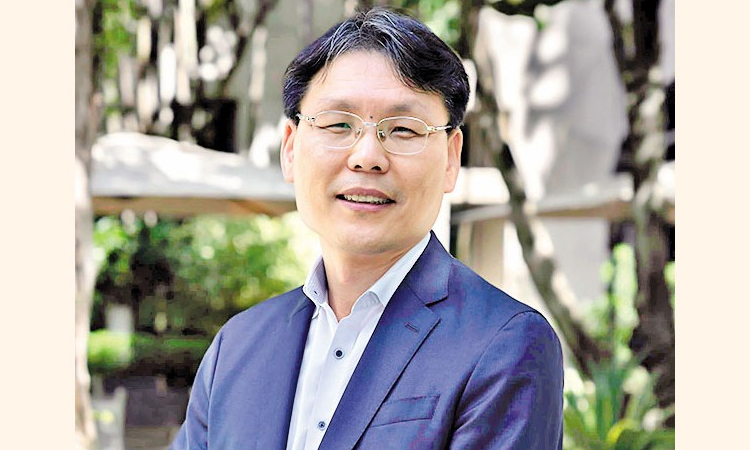News Flash
News Flash

DHAKA, April 9, 2025 (BSS) - Asian Development Bank (ADB) Country Director Hoe Yun Jeong today said that they expect from the government of Bangladesh to advance further critical reforms in issues like revenue mobilization, NPLs, and energy security.
"Going forward, we expect the government will advance further critical reforms to enhance domestic revenue mobilization, resolve the issue of elevated non-performing loans, ensure energy security, and boost private sector investment," he said.
The ADB Country Director made the remarks while speaking at the launching of the Bangladesh chapter of the ADB's latest report, the Asian Development Outlook (ADO) April 2025, released today at the Bangladesh Resident Mission office in the capital's Agargaon area.
ADB Country Economist Chandan Sapkota made a power-point presentation.
Jeong said, "We also expect an improvement in public investment management, particularly in enhancing project readiness and implementation capacities,"
As a longstanding development partner, he said the ADB would continue to support the government in these areas through policy-based loans, project investments, and technical assistance.
"ADB will also put high importance on private sector development, resilience to natural disasters, digitization, regional cooperation, and regional public goods, as well as empowerment," he said.
Jeong said the ADB expects the country's economic growth to moderate further in fiscal year 2025, vis-...-vis FY2024. "But, we expect a rebound in FY2026 with improvements in domestic demand. We expect inflation to remain high. Monetary policy will likely continue to be tight, with a focus on resolving banking sector vulnerabilities, including rising non-performing loans,"
In the external sector, he said that the ADB expects the current account deficit to narrow slightly, thanks to robust remittance inflows. Similarly, in the fiscal sector, he said the lending agency expects the fiscal deficit to remain around the FY2024 level in anticipation of an uptick in revenue mobilization and an increase in government recurrent spending.
Citing that there are downsides risks to the economic outlook, the ADB Country Director said growth could be hit by stubbornly high inflation, prolonged monetary tightening, political uncertainty, adverse weather events, and global economic slowdown sparked by the USA's sweeping tariff.
In his closing remarks, Jeong said despite global challenges, Bangladesh's economy remains resilient.
He said the country needs to fortify this resilience by implementing essential reforms to sustain higher growth. Implementing these reforms swiftly is vital as the country is scheduled to graduate from the least developed country status in November 2026, he added.
Jeong said a forthcoming joint study report by ADB and the Organization for Economic Co-operation and Development, titled "Roadmap for Investment Policy Reforms and Sustainable Development in Bangladesh" highlights critical reforms that need to be addressed for increasing trade and improving the investment climate, particularly FDI in post-LDC graduation period.
"Now, economic growth is one part of the equation, and its sustainability is another. We reaffirm ADB's continued support to the government in implementing necessary reforms and embarking on key projects to help the country achieve sustainable development goals." He ended.